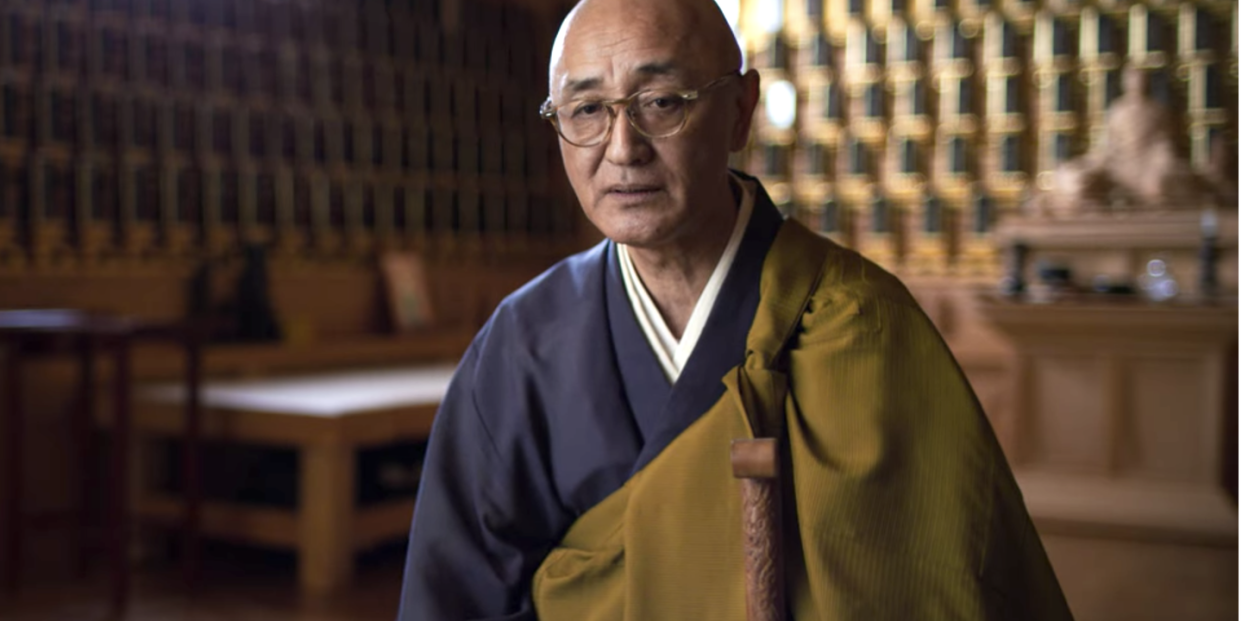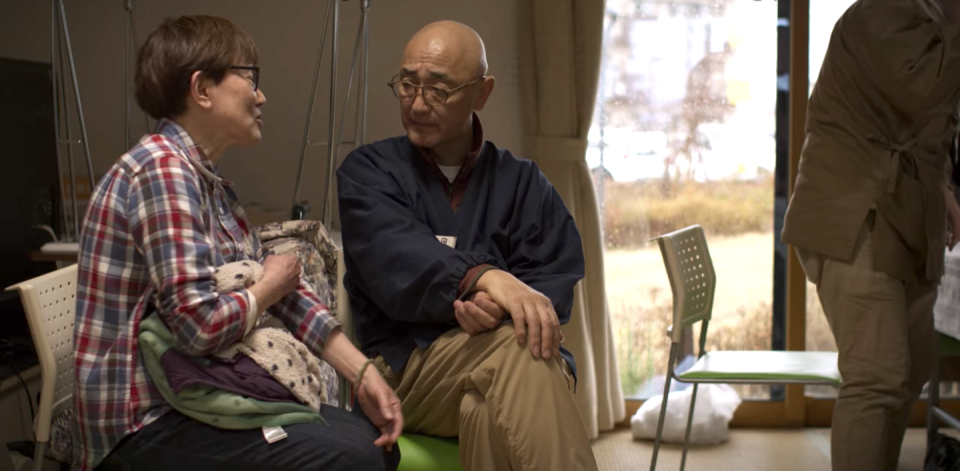How Taio Kaneta from ‘Unsolved Mysteries’ Uses Coffee and Cake to Help People Grieve

Episode 4 of Volume 2 of Netflix's Unsolved Mysteries is titled "Tsunami Spirits" and looks at unexplained instances in Japan of what people believe are spirits of people who were killed in a March 2011 tsunami.
The episode includes a character named Reverend Taio Kaneta, who is said to have conducted exorcisms and helped people move on and let go past the disaster.
Here's what we know about Kaneta in Unsolved Mysteries.
The fourth episode of volume 2 of Netflix's reboot of Unsolved Mysteries is called "Tsunami Spirits," and looks at the mysterious, possibly supernatural happenings that have been reported in the time since the March 2011 earthquake and subsequent tsunami that devastated the Tohoku region of Japan.
Throughout "Tsunami Spirits," viewers see talking head interviews with a man named Reverend Taio Kaneta, a monk from the region where the earthquake and tsunami hit, who has met with, advised, and even, essentially, exorcised spirits from many who survived the tsunami with trauma and others who claim to have had supernatural experiences.
In the final segment of the episode, Taio crosses paths with a young woman named Ami. Ami—who ostensibly had no connection to the tsunami before this—says that she felt the presence of several different spirits of the deceased over time, from a man grabbing a girl's leg stopping her from leaving, to a girl who simply needed to let go of her past. Taio invited her to come to his home whenever she needed help—she was scared, and felt constant pain—and he would always help her.

Kaneta was also a character in the book Ghosts of the Tsunami: Death and Life in Japan's Disaster Zone by Richard Lloyd Parry, which focused on his exorcisms on two people who were not affected by the disaster: a builder from his parish, and a nurse from Sendai.
Parry also shared a story on NPR of a man who supposedly would have dinner with his family every night before violently convulsing in the mud, making animal noises, and threatening violence; this would go on for days at a time before the family called upon Kaneta to drive the spirits out. It's not clear if either of these people mentioned are the same as the "Ami" we meet in the Unsolved Mysteries episode, but it's clear that Kaneta has been steadfast with his story for years at this point.

You don't necessarily have to believe in ghosts to see the good in what Kaneta does. It's not up to us to decide what is or isn't happening to people who come to see the monk, whether they're actually possessed by ghosts or have experiences, or are simply coping with what's been nationwide trauma for nearly a decade.
At the end of the episode, he alludes toward a group that he's established for Tsunami survivors, where they come together and talk about those experiences, whatever that might be. "From my experience with Ami, I realized that what we can do is listen to people to help cure their pain."

He describes forming what is, essentially, a group therapy for tsunami survivors. He provides the coffee, cake, and a place to come together, and people will come with their stories. He traveled around the region with other priests, and created what was basically a caravan of healing for people who needed it. Parry wrote at length about this—which Kaneta calls "Cafe de Monk" in his book (in a section excerpted by Longreads).
He began traveling around the coast with a group of fellow priests, organizing a mobile event that he called “Café de Monku”—a bilingual pun. As well as being the Japanese pronunciation of the English word “monk,” monku means “complaint.” “We think it will take a long time to get back to a calm, quiet, ordinary life,” read the flyer that he distributed. “Why don’t you come and join us—take a break and have a little moan? The monks will listen to your complaint—and have a monku of their own too.”
Kaneta says in the piece that people don't like to cry, but when they open up about their bereavement, and memories of the wave, and fears of loss, the tears end up flowing. And he also says that he prefers that he and the other priests never ask too many questions; instead, opting to let the people who choose to come to the Cafe de Monk events speak their own truths.

But it always ends up coming back to whether or not people are really seeing supernatural spirits of people who died in the tsunami.
“Religious people all argue about whether these are really the spirits of the dead,” Kaneta says in the piece. “I don’t get into it, because what matters is that people are seeing them, and in these circumstances, after this disaster, it is perfectly natural ... The dead are attached to the living, and those who have lost them are attached to the dead. It’s inevitable that there are ghosts.”
No matter what path taken there, though, it's about moving on and letting go. And whether you believe in ghosts or just believe in healing, Kaneta seems to be helping people find the path there one way or another.
"I want people to come with the pain they're carrying in order to let go," he says in the episode. It doesn't take believing in ghosts to understand what he's doing there. People cope in different ways; letting go, though, is universal.
You Might Also Like

